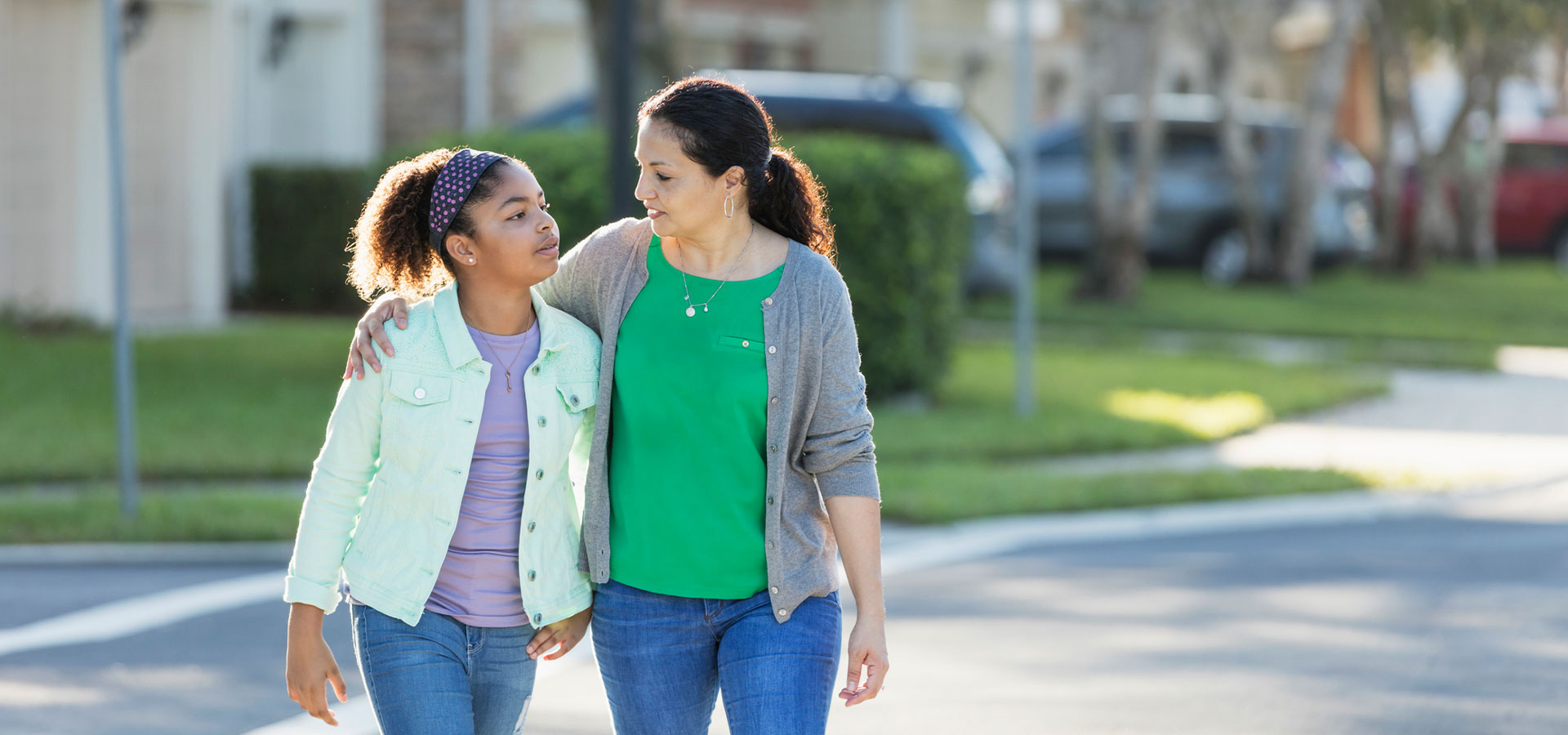While annual check-ups for your physical health are important, we don’t always place the same emphasis on our emotional well-being. But mental health issues can manifest in many ways and can come up at any age for various reasons. These feelings may be amplified by the unprecedented pandemic we have all been living through.
If you or a family member have been feeling off lately, it may be time to see a behavioral health specialist.
Children and Teens
It’s tough enough to be a kid. Children and teens juggle social lives, schoolwork and activities, and are shaped by expectations from their parents, peers and teachers. Living through the unprecedented disruptions to school, home and social life has made this past year especially challenging. It can be hard for kids to process their feelings about issues of this magnitude. If you’ve noticed your kids have been acting up, acting out or are just not themselves, you may want to consider scheduling a mental health check-up.
“We have seen a lot of negative effects on motivation, energy and school engagement in kids,” said Lisa Ramirez Shah, PhD, ABPP, a MetroHealth psychologist. “While we need to allow children and teenagers the space to experience the anger and sadness that can come along with an event like a global pandemic, we also need to pay attention to when they aren’t able to meaningfully participate in the world around them, even if that world is limited to their households.”
Dr. Ramirez recommends seeking a mental health provider for your child if he or she demonstrates any of the following:
- Changes in sleeping patterns
- Decreases or increases in appetite
- Little desire to spend time outside of their rooms or with their friends (socially distanced or online)
- Avoiding activities they used to enjoy
- Lack of self-care habits, like brushing hair or teeth
- Changes in overall mood such as overreacting to situations or exhibiting a lack of emotions
- Low energy levels
- Talking about feeling hopeless or wanting to hurt themselves (see sidebar)
How Parents Can Help
Empathy and validation from parents can be powerful coping tools for children. Parents often try to discourage kids from venting or dwelling on negative thoughts, but ignoring feelings doesn’t make them go away. Having conversations about complex emotions can help children feel understood.
Parents can also model positive ways to work through anxiety with coping mechanisms such as mindfulness, self-care and positive self-talk. Sometimes, the adults in young people’s lives don’t have the most effective coping strategies, and this is when seeking out support for children and their families can be beneficial for all.
If you’re concerned about your child and would like to speak with a child and adolescent health professional, call 216-778-3745.
Suicide Prevention
If you or someone you know is experiencing suicidal thoughts, please go to your nearest emergency department. To speak to someone now, call:
- 24/7 Crisis Hotline
- 216-623-6888 or National Suicide Prevention Lifeline 1-800-273-8255
Older Adults
It’s not only kids who might be feeling more anxious lately. After more than a year of quarantining, social distancing and wearing masks, older adults may be concerned about returning to activities like running errands and spending time with friends and family, even if they are vaccinated.
“Older adults have been dealing with some scary public health messages, including the need to isolate because becoming infected with COVID-19 can be very serious,” said Eric Berko, PhD, a psychologist at MetroHealth. “Being afraid is a basic human survival instinct. A good portion of our society has been in survival mode. It can be hard to shake that.” However, Dr. Berko has the following tips for dealing with this uncertainty.
Acknowledge Your Risk Tolerance
Be kind to yourself about your risk tolerance. Each person feels a bit differently about re-entering society. For example, if you have a health history of diabetes, heart disease or obesity, you may be less comfortable with loosening COVID-19 restrictions than an individual without these underlying conditions.
Ease Back into Activities
To keep anxiety at bay, it’s okay to not jump back into activities that make you nervous. For example, if the idea of indoor activities makes you uncomfortable, start with quick, masked trips to the grocery store without giving in to the impulse to leave when you start to feel anxious. Or schedule a short visit with a small group of vaccinated family members and friends. Be sure to consult the latest CDC guidance for what’s safe.
“Feeling embarrassed about your anxiety can be counterproductive, while acknowledging your comfort level can help you make decisions about what activities to pursue,” explained Dr. Berko.
Limit Your Media Consumption
Constantly watching news about the pandemic can contribute to your anxiety. “While you may want to stay informed about the local COVID-19 transmission levels, you need to be careful about ongoing coverage that contributes to fear and divisiveness,” said Dr. Berko. It’s important to take breaks from the media.
Don’t Hesitate to Get Help
If you find that your anxiety is starting to interfere with your quality of life, MetroHealth’s behavioral health specialists are here for you. To make an appointment, call 216-778-4428 or visit our Behavioral Health services page.













